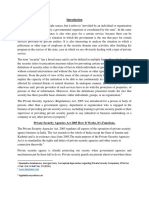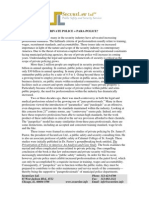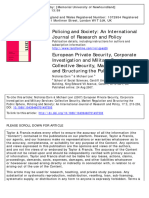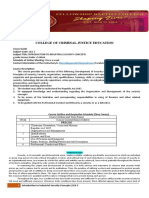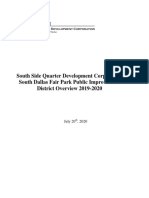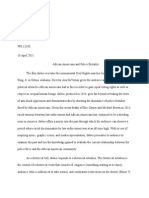0% found this document useful (0 votes)
16 views24 pagesRelationship Between Police and Private Security
The document discusses the evolving relationship between police and private security in India, highlighting the increasing reliance on private security due to perceived inadequacies in public policing. It outlines the regulatory framework established by the Private Security Agencies (Regulation) Act, 2005, and identifies various challenges such as lack of mutual respect, communication issues, and jurisdictional conflicts that strain their collaboration. The document emphasizes the need for complementary roles and better coordination between both entities to enhance overall security.
Uploaded by
yadav.varsha267Copyright
© © All Rights Reserved
We take content rights seriously. If you suspect this is your content, claim it here.
Available Formats
Download as PPTX, PDF, TXT or read online on Scribd
0% found this document useful (0 votes)
16 views24 pagesRelationship Between Police and Private Security
The document discusses the evolving relationship between police and private security in India, highlighting the increasing reliance on private security due to perceived inadequacies in public policing. It outlines the regulatory framework established by the Private Security Agencies (Regulation) Act, 2005, and identifies various challenges such as lack of mutual respect, communication issues, and jurisdictional conflicts that strain their collaboration. The document emphasizes the need for complementary roles and better coordination between both entities to enhance overall security.
Uploaded by
yadav.varsha267Copyright
© © All Rights Reserved
We take content rights seriously. If you suspect this is your content, claim it here.
Available Formats
Download as PPTX, PDF, TXT or read online on Scribd
/ 24


